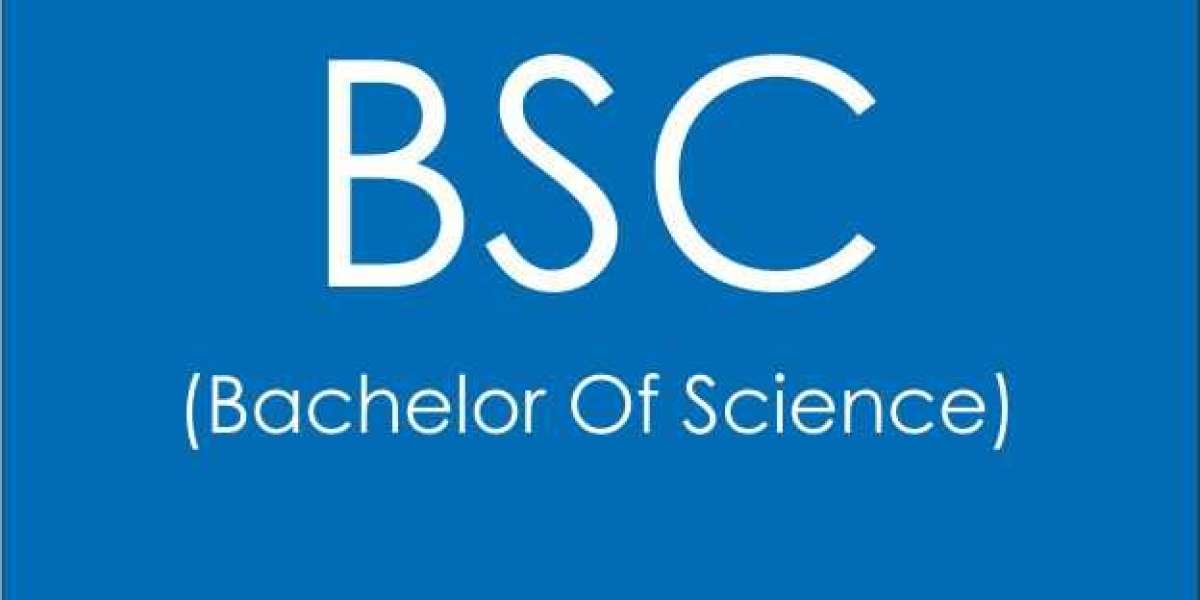Pursuing a Bachelor of Science (BSc) degree is an enriching experience that opens the doors to a world of possibilities. As a student, the journey of a BSc program is not just about acquiring theoretical knowledge but also about developing skills, exploring new horizons, and preparing for a dynamic career. This article dives deep into the life of a BSc student, highlighting challenges, opportunities, and the ultimate impact of this degree on one’s future.
What is a BSc?
The BSc full form is Bachelor of Science, a three- or four-year undergraduate degree designed to provide foundational and specialized knowledge in various scientific fields. From physics and chemistry to computer science and environmental science, BSc offers a plethora of specializations tailored to students' interests and career goals. The degree is recognized worldwide and is a stepping stone for careers in research, academia, industry, or advanced studies.
Why Choose a BSc Degree?
As a student, deciding to pursue a BSc degree can stem from various reasons. Here are some factors that make BSc an appealing choice:
Diverse Specializations: Whether you’re fascinated by the mysteries of the universe, the intricacies of living organisms, or the power of technology, BSc offers tailored specializations such as physics, biology, computer science, and more.
Skill Development: A BSc program hones analytical thinking, problem-solving, and research skills. These attributes are highly valued across industries.
Global Opportunities: A BSc degree is globally recognized, providing avenues for further education and careers internationally.
Foundation for Advanced Studies: For those eyeing a Master’s or a PhD, BSc forms a solid base for higher education in specialized fields.
High-Demand Career Paths: From healthcare and technology to environmental science and education, BSc graduates find employment in diverse and rewarding fields.
The Journey of a BSc Student
Year 1: The Foundation Year
The first year of a BSc program is all about laying a strong foundation. For many students, transitioning from high school to university life is a mix of excitement and adjustment. The curriculum is designed to introduce core subjects while helping students develop critical thinking and study habits. It’s also the time to explore interests and identify preferred specializations.
Challenges: Adjusting to a new learning environment and managing time efficiently.
Tips:
Attend workshops and orientation sessions to familiarize yourself with university resources.
Form study groups to collaborate on complex topics.
Year 2: Diving Deeper
By the second year, the program becomes more intensive as students delve into their chosen specializations. Laboratory work, projects, and research assignments become integral parts of the curriculum. This year demands focus and dedication as the workload increases.
Opportunities:
Participate in internships or part-time research projects to gain practical experience.
Join clubs or societies related to your field to network and expand knowledge.
Year 3: Specialization and Career Preparation
In the final year, students are fully immersed in their field of study. This period often involves completing major projects, internships, and preparing for final exams. Career planning takes center stage as students explore job opportunities or apply for higher studies.
Achievements:
Publishing research papers, presenting findings, and attending conferences can add significant value to your profile.
Building a strong resume and preparing for interviews or entrance exams.
Challenges Faced by BSc Students
Like any academic pursuit, a BSc degree comes with its own set of challenges:
Balancing Theory and Practice: Bridging the gap between classroom learning and practical applications can be daunting.
Intense Curriculum: The workload, especially in laboratory-based courses, can be demanding.
Competition: Staying ahead in a competitive environment requires consistent effort.
Career Uncertainty: Deciding between entering the job market or pursuing higher studies can be confusing.
How to Overcome These Challenges
Time Management: Create a schedule to balance coursework, labs, and extracurricular activities.
Seek Guidance: Professors, mentors, and alumni can provide valuable insights into career paths and opportunities.
Continuous Learning: Stay updated with advancements in your field through online courses, webinars, and journals.
Stress Management: Engage in hobbies, physical activities, or mindfulness practices to maintain mental well-being.
Career Opportunities After a BSc Degree
The BSc full form may signify an academic qualification, but its impact extends far beyond the classroom. Here are some promising career options for BSc graduates:
Research Scientist: Conduct experiments and studies to advance scientific knowledge.
Data Analyst: Utilize analytical skills to interpret data and provide insights.
Healthcare Professional: Roles in biotechnology, microbiology, or pharmaceuticals.
Environmental Scientist: Address environmental challenges and develop sustainable solutions.
Educator: Teach and inspire the next generation of scientists.
IT Specialist: Fields like computer science, AI, and cybersecurity offer lucrative roles.
Conclusion
Embarking on a BSc journey is both challenging and rewarding. The degree equips students with the knowledge, skills, and confidence to thrive in various professional fields. As a student, making the most of this experience involves embracing learning opportunities, overcoming challenges, and staying focused on long-term goals. The BSc full form may be Bachelor of Science, but for students, it represents a gateway to endless possibilities.
FAQs About BSc
1. What is the duration of a BSc program?
A BSc program typically lasts three years, but some specializations may extend to four years, especially if they include internships or integrated projects.
2. Can I pursue a BSc after completing 12th grade in arts?
While most BSc programs require a science background, some interdisciplinary courses like BSc in Environmental Science or Psychology may admit students from arts backgrounds.
3. Is a BSc degree enough to get a high-paying job?
A BSc degree can lead to lucrative job opportunities, especially in IT, healthcare, and data science. However, pursuing higher studies or gaining relevant experience can enhance earning potential.
4. How do I decide which BSc specialization is right for me?
Consider your interests, career goals, and the industry demand for the specialization you’re considering. Consult academic advisors or professionals in the field for guidance.
5. Can I pursue an MBA after completing a BSc?
Yes, many BSc graduates opt for an MBA to gain managerial skills and expand their career prospects in industries like healthcare management, IT, or finance.








